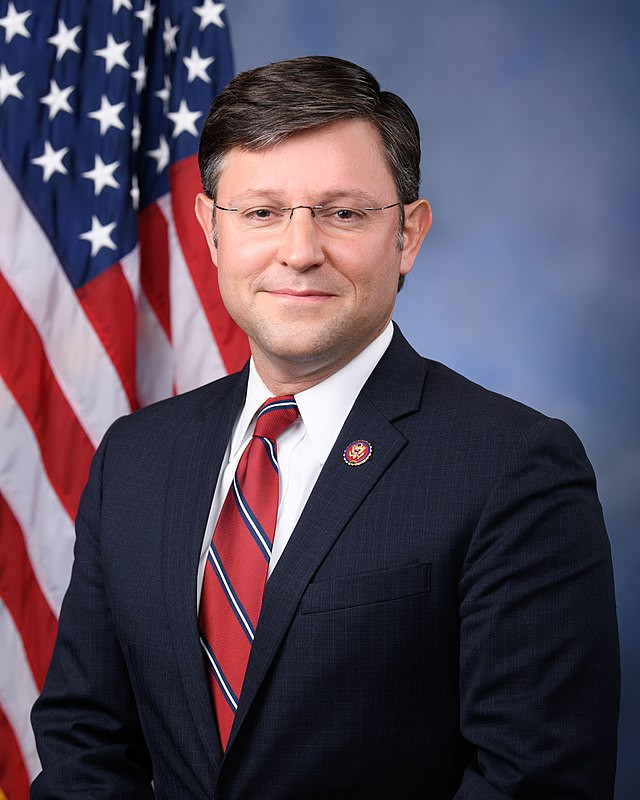After 22 days of internal disputes and three changes in Speaker candidates within the Republican Party, the relatively unknown Mike Johnson from Louisiana, serving as the Deputy Chair of the House Republican Conference, emerged as the new Speaker, surpassing several GOP heavyweights.
In the October 25 Speaker election, Johnson, who only entered Congress in 2016, received unanimous support from the 220 voting Republicans. In contrast, the 209 Democratic votes were cast for their candidate, Democratic House Leader Hakeem Jeffries.
Currently, Republicans control 221 seats in the House, with Democrats holding 212. Several members were absent during the Wednesday vote.
For the deeply divided Republicans, the unanimous backing for Johnson was a significant achievement.
Elise Stefanik, Chair of the House Republican Conference, openly stated that Johnson is well-liked among House Republicans, being "everyone's friend." Other members noted that Johnson, unlike some, isn't confrontational and has never attacked peers without justification.
However, Johnson's amicable demeanor doesn't categorize him as a moderate. While not a member of the far-right "Freedom Caucus," he is a staunch conservative. He opposes abortion, same-sex marriage legalization, and advocates for stricter border controls. On fiscal matters, he supports significant federal spending cuts. Regarding China, he's seen as a "savvy hawk."
Trump's Seal of Approval
Former President Donald Trump played a pivotal role in Johnson's ascent. Traditional Republicans faced opposition from the party's hardline right-wing faction, who believed they were too compromising with Democrats.
Trump took matters into his own hands, criticizing these Republicans on his social media platform, Truth Social. Shortly after Trump's critique, they withdrew from the Speaker race. However, both Trump and the pro-Trump "Freedom Caucus" expressed support for Johnson.
Bob Good, a "Freedom Caucus" member, highlighted Johnson's credibility as a distinguishing factor. Matt Gaetz, another staunch Trump supporter, viewed Johnson's election as a victory for the MAGA movement, emphasizing Trump's significant influence.
Before the Wednesday vote, Trump released a statement urging House Republicans to back Johnson for Speaker. After the vote, Trump exclaimed, "MAGA Johnson!"
Conservative Leanings
Upon his election, Johnson immediately called for a vote supporting Israel, dubbing it America's "dear friend." The resolution, emphasizing Israel's right to self-defense and condemning Hamas, passed overwhelmingly. However, it carries no legal weight.
Public records reveal that Johnson received donations from entities associated with the American Israel Public Affairs Committee and defense contractor Northrop Grumman.
Johnson has been particularly active in social issues, staunchly opposing abortion and same-sex marriage legalization.
Democrats note that Johnson has endorsed multiple bills aiming to ban abortion nationwide. House Democratic Leader Jeffries described Johnson as representing "extreme right-wing ideology."
Like other far-right conservatives, Johnson has pushed for immigration restrictions. On China, Johnson is a hardliner. In 2020, he co-authored sections related to China trade in a U.S. national security report, advocating for stricter sanctions on entities linked to the Chinese military.
Challenges Ahead
One immediate challenge for Johnson is the federal government's spending bill for the new fiscal year, set to expire on November 17.
Johnson has been a proponent of significant government spending cuts. In previous votes, he opposed temporary spending bills and declined cooperation with Democrats.
However, during a debt ceiling crisis, Johnson voted in favor of raising the debt ceiling, explaining it was a necessary move due to Democrats' reluctance to cut spending.
Regarding the new fiscal year's spending, Johnson has proposed a short-term spending bill to sustain the federal government until either January 15 or April 15 of the following year.
While Johnson maintains good relations with GOP colleagues, he's not known for bipartisan cooperation. Georgetown University's 2021 Bipartisanship Index ranked him near the bottom, suggesting that under Johnson's leadership, the intense battles between Republicans and Democrats in the House will likely persist.






